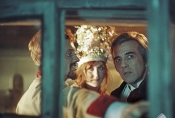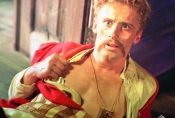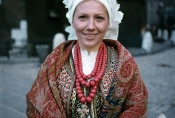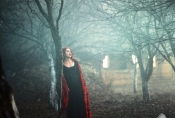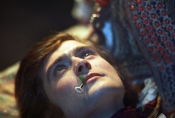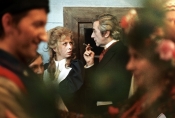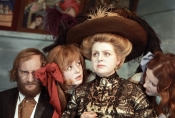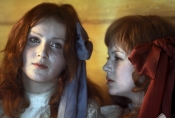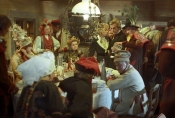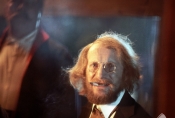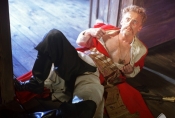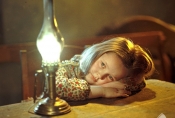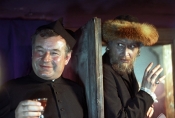THE WEDDING [1972]
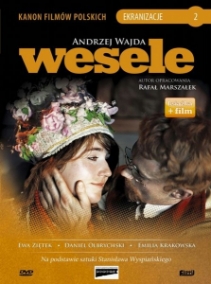
year:
- 1972
release date:
- 9 I 1973
runtime:
- 102 min
directed by:
- Andrzej Wajda
written by:
- Andrzej Kijowski based on the play by Stanisław Wyspiański
director of photography:
- Witold Sobociński
cast:
- Daniel Olbrychski [bridegroom], Ewa Ziętek [bride], Andrzej Łapicki [a poet], Wojciech Pszoniak [a journalist], Franciszek Pieczka [Czepiec], Marek Walczewski [host], Izabela Olszewska [hostess], Emilia Krakowska [Marysia], Mieczysław Stoor [Wojtek], Kazimierz Opaliński [father], Henryk Borowski [an old man], Marek Perepeczko [Jasiek], Janusz Bukowski [Kasper], Andrzej Szczepkowski [Nos], Mieczysław Czechowicz [priest], Barbara Wrzesińska [Maryna], Czesław Wołłejko [Hetman], Wirgiliusz Gryń [Specter], Hanna Skarżanka [Klimina]
edited by:
- Halina Prugar
music by:
- Stanisław Radwan
production design:
- Tadeusz Wybult
Kostiumy:
- Krystyna Zachwatowicz
produced by:
- Zespół Filmowy „X”
executive producer:
- Barbara Pec-Ślesicka
awards:
-
• Lubusz Film Summer Łagów 1973: Grand Prix Golden Grape, best screenplay award for Andrzej Kijowski, best set design for Tadeusz Wybult, Krystyna Zachwatowicz and Maciej Maria Putowski, best cinematography award for Witold Sobociński, the Arthouse Cinema Coordinating Arts Council Award
• IFF San Sebastian (Spain) 1973: Silver Shell
• Golden Camera 1974
About the film
An original adaptation of the Young Poland drama, breaking with the theatricality of The Wedding, even if it retains the original rhymed dialogues. An excellent example of creative cinema of rare beauty and suggestiveness. A secret night mystery, saturated with colors pulsating with each scene; figures emerge briefly from the swirling crowd of guests, only to disappear back into the dance circle after delivering their lines.
The drama opens in front of St. Mary's Church in Krakow, where a wedding procession sets out to a reception in Bronowice. Along the way, the guests pass an Austrian fort, roadside crosses and a peasant funeral. In a small mansion, the wedding reception begins; people from the city and the countryside face one another in an intellectual confrontation, a confrontation of different views and mentalities, fuelled by dancing and alcohol. In the finale, Jasiek, carrying the Golden Horn, rides on his white horse between the Russian and Austrian border patrols. Once they sober up, the peasants terrorise the intelligentsia with their scythes.
Jan Słodowski, Leksykon polskich filmów fabularnych, Warszawa 1996
